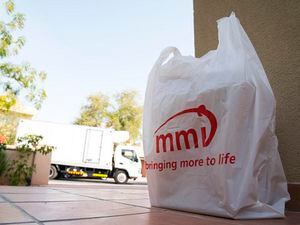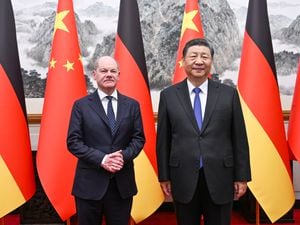Home deliveries of alcohol keep Dubai economy ticking over during lockdown
Although Islamic, the sheikhdom has relaxed drinking laws during normal times.

Alcohol home deliveries are being used in Dubai as the Islamic sheikhdom with famously wet drinking laws adapts to life under lockdown.
Sports bars have emptied as residents look to self-isolate but there is no sign of a change in drinking tastes.
The skyscraper-studded desert metropolis on the Arabian Peninsula has long been one of the wettest places in the Middle East in terms of alcohol consumption, its bars and licensed restaurants serving tourists, travellers and its vast population of foreign workers.
The global Covid-19 pandemic has changed things.
With the virus threatening a crucial source of tax and general revenue for its rulers, Dubai’s two major alcohol distributors have teamed up to offer home delivery of beer, spirits and wine, in yet another loosening of social mores in this Islamic city-state.

“Luxury hotels and bars have been the worst impacted within the sector and this had a direct impact on alcohol consumption … in the United Arab Emirates,” said Rabia Yasmeen, an analyst for market research firm Euromonitor International.
Maritime and Mercantile International, a subsidiary of the government-owned Emirates airline known as MMI, and African & Eastern created the website offering home delivery.
Its products range from a 530 US dollar bottle of Don Julio 1942 Tequila to a 4.30 dollar bottle of Indian blended whisky, with beers and wines in between.
The website, legalhomedelivery.com, a nod towards the online bootleggers long operating in the margins of Dubai, describes the service as needed “in these unprecedented times”.
The few remaining tourists can use their passports to buy the alcohol.
Residents need an alcohol licence, a plastic red card issued by Dubai police that requires annual renewal.
Only non-Muslims aged 21 and older can apply for a licence, although bartenders across the city never check for them before pouring drinks.
Text message alerts give buyers a predicted delivery time within a few hours, although a crew showed up six hours early for one delivery on Tuesday, wearing masks and disposable gloves.
Officials at African & Eastern, a private company believed to be at least partially held by the state or affiliated firms, and MMI acknowledged the pandemic is likely to affect their revenues for the year.
Most of their physical stores remain open, although Dubai now is under a 24-hour lockdown that requires the public to have police permission to go to the grocery store.

“We are in the early days of the service and interest has been high already,” said Mike Glen, MMI’s managing director for the UAE and Oman.
Mr Glen and Sean Hennessey, African & Eastern general manager for UAE and Oman, declined to offer any sales statistics.
Mr Hennessey also declined to say who owned African & Eastern.
A push to keep alcohol shops open during the pandemic may be surprising to some, especially as drinking is illegal in the neighbouring emirate of Sharjah and the nations of Iran, Kuwait and Saudi Arabia.
But alcohol sales have long been important for the wider economy of Dubai, one of seven sheikhdoms in the United Arab Emirates.
There is a 50% import tax on a bottle of alcohol, as well as an additional 30% tax in Dubai on buying from liquor stores.
Dubai Duty Free, which is also government owned, sold nine million cans of beer, 3.1 million whisky bottles and 1.5 million bottles of wine to those passing through airport terminals in 2019.
Duty-free sales, while limited, never require an alcohol licence.

Even before the pandemic, lower global energy prices, a 30% drop in the city’s real estate market value and trade war fears have seen employers shed jobs.
Dubai is trying to postpone its Expo 2020, or world’s fair, to next year, another major blow.
Overall sales of alcohol by volume fell sharply in 2019 to 128.79 million litres, down 3.5% from 133.42 million litres the year before, according to Euromonitor’s latest statistics.
The 2019 sales were down nearly 9% from 2017, which saw 141.51 million litres sold.
Those lower sales affect everyone from waitresses to Dubai’s ruling Al Maktoum family, which has worked over decades to make the city a major tourist destination, home to the world’s tallest building.
That weakened economy may prove to be a threat long after the pandemic.





